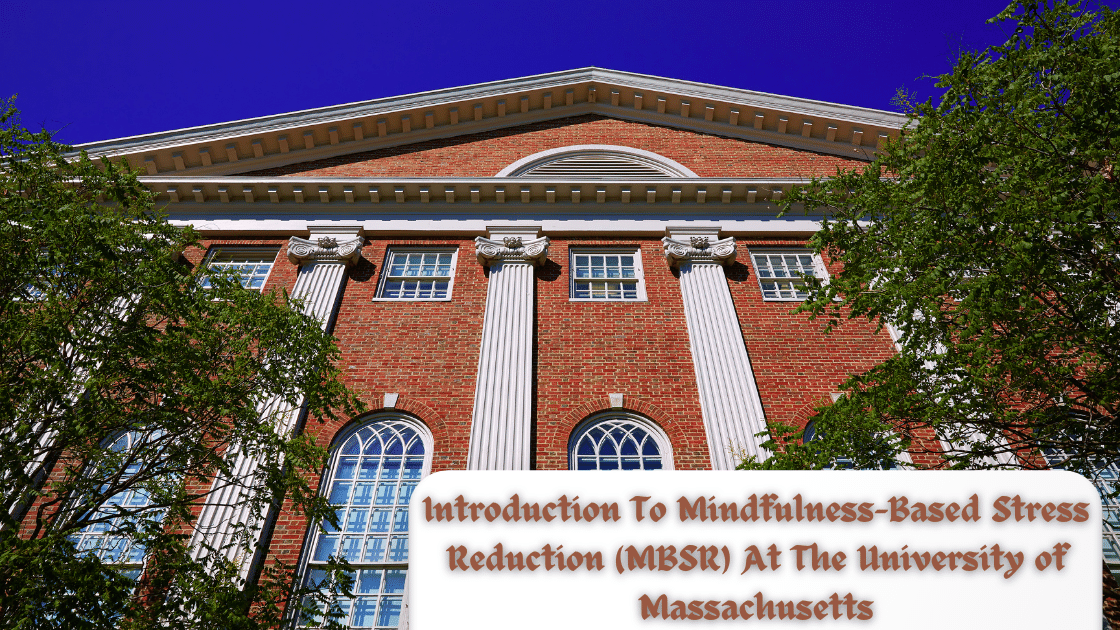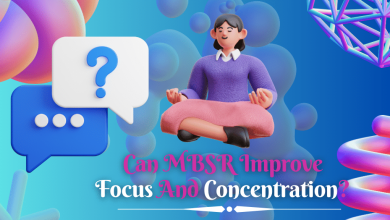Mindfulness Based Stress Reduction at the University of Massachusetts
It hurts me when people don’t respect where a valuable entity originated from.
This most times looks like a lack of respect for nature and life itself in general.
To balance my statement and give you a better view of where am heading, continue reading from the first heading.
That best explains the purpose of publishing this post
Introduction To Mindfulness-Based Stress Reduction (MBSR) At The University of Massachusetts

Mindfulness-Based Stress Reduction (MBSR) is a program developed by Jon Kabat-Zinn in 1979 at the University of Massachusetts Medical Center.
The program was designed to help people cope with physical and emotional pain and to reduce stress and anxiety in their lives.
Since then, MBSR has become a popular form of mindfulness-based therapy, used in many different settings to improve mental and physical health.
What is MBSR and how does it work? – Brief Explanation
MBSR is an eight-week program that teaches mindfulness techniques through a series of structured classes and exercises.
The program includes mindfulness meditation, body scanning, and gentle yoga to help participants cultivate awareness of the present moment, reduce stress, and improve overall well-being.
Furthermore, MBSR is based on the idea that by focusing on the present moment, people can reduce the negative effects of stress and anxiety on their lives.
Through regular practice, participants can learn to be more present and mindful in their everyday lives, leading to greater emotional resilience and overall health.
MBSR At the University Of Massachusetts – History and Documentation
The University of Massachusetts (UMass) is a public research university located in Amherst, Massachusetts.
It was established in 1863 and has since grown to become the flagship campus of the University of Massachusetts system.
The university offers over 100 undergraduate programs and over 75 graduate programs across a wide range of disciplines, including business, engineering, education, and health sciences.
UMass is particularly well-known for its role in establishing mindfulness-based stress reduction (MBSR).
In the late 1970s, Dr. Jon Kabat-Zinn, a professor of medicine at UMass, began developing a program that would help patients manage chronic pain and stress using mindfulness techniques.
This program eventually evolved into the MBSR program, which is now widely used in healthcare settings around the world.
The MBSR program consists of an 8-week course that combines mindfulness meditation, yoga, and other mindfulness techniques to help individuals reduce stress and improve their overall well-being.
Moreover, the program has been shown to be effective in reducing symptoms of anxiety and depression, as well as improving cognitive function and quality of life.
Dr. Kabat-Zinn and his team at UMass Center for Mindfulness have trained thousands of individuals, including healthcare professionals, educators, and corporate leaders, in the MBSR program.
The Center for Mindfulness also conducts research on the effectiveness of mindfulness-based interventions for a wide range of health conditions and collaborates with other institutions to advance the field of mindfulness research and education.
Overall, the University of Massachusetts has played a significant role in establishing MBSR as a viable approach to managing stress and improving well-being.
Through the work of Dr. Kabat-Zinn and the UMass Center for Mindfulness, the benefits of mindfulness meditation and other mindfulness techniques are now widely recognized and integrated into healthcare and other settings around the world.
Benefits Of MBSR for University Students
MBSR has been shown to have numerous benefits for university students, including:
1. Decrease Stress
MBSR can help students manage stress and anxiety, which are common challenges in university life.
2. Improved well-Being
Regular practice of mindfulness techniques can lead to improved overall well-being and a greater sense of calm and happiness.
3. Increased Empathy
MBSR can help students develop greater empathy for themselves and others, which can improve their relationships and overall satisfaction with life.
4. Improved Academic Performance
Research has shown that regular mindfulness practice can improve academic performance by increasing focus and attention.
Limitations and Challenges of Implementing MBSR In University Settings
Despite its many benefits, there are also limitations and challenges to implementing MBSR in university settings.
Some of these include:
1. Time Constraints
University students are often busy with academic and extracurricular activities, which can make it challenging to find time for regular mindfulness practice.
2. Funding Limitations
Providing MBSR programs can be expensive, which may make it difficult for universities to offer the program to all students who could benefit from it.
3. Resistance From Faculty And Staff
Some faculty and staff may be resistant to the idea of offering mindfulness-based programs in academic settings, which could make it difficult to gain support for the program.
4. Limited Evidence Of Effectiveness
While there is some evidence to support the effectiveness of MBSR, more research is needed to fully understand its impact on university students.
Conclusion
MBSR is a powerful mindfulness-based program that can have numerous benefits for university students.
While there are challenges to implementing the program in university settings, the potential benefits make it a worthwhile investment for universities that prioritize student well-being and academic success.
By providing students with the tools to manage stress, improve well-being, and increase empathy, universities can help support the mental and emotional health of their students and contribute to a more positive learning environment.








